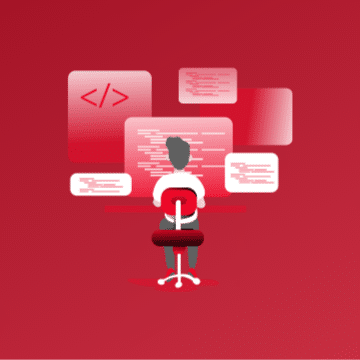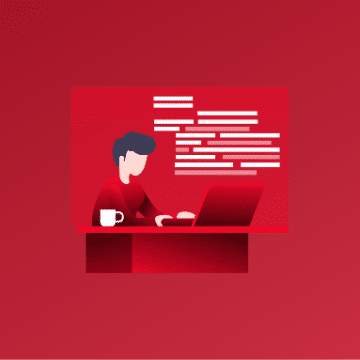Use our template to create a compelling and comprehensive C/C++ Developer job description to attract top talent.
The C/C++ Developer is an expert in these essential computer languages: C and its C++ heir. Widely used in the industry, these programming languages are a skill highly sought after by companies.
C is a general-purpose language from the 1970s, and still in use in systems programming and robotics. C++ was born in the 1980s. It is the language of choice for those looking for performance, as it can execute complex code very fast. For example, for the design of mobile applications, for the programming of operating systems or video games, as well as in the creation of certain military programs.
Also explore the role of the React.js Developer
What is the role of the C/C++ Developer?
The missions of a C/C++ Developer revolve around there main areas:
Drafting specifications
The first step in the work of a C/C ++ Developer is that of writing the specifications. Indispensable to the start of any IT project, this step is done in agreement with the internal or external customer. These specifications include the specific needs of the project, the available resources, the budget, the feasibility and many other criteria intended to ensure the smooth running of the project.
This construction is done after an analysis of the customer’s expectations and the needs of the users of the future product.
Architectural design
Once the specifications have been drawn up, it is time to start building the architecture. This involves starting to program the software through lines of computer code.
This part of the job can also be done on the basis of existing code, usually to incorporate new features.
Test and maintenance phase
The third step in the work of the C/C ++ Developer is to monitor the work done so far, through many phases of testing. The objective is to measure the proper functioning of the program or application and to anticipate possible failures.
To facilitate understanding of their work and facilitate a potential handover, the developer must provide a technical installation manual and a user guide that they will have written at the end of the project. They often also have to provide maintenance to respond to any bugs.
Required skills of the C/C++ Developer
Perfect knowledge of programming tools and languages
The C/C ++ Developer must have a perfect knowledge of programming languages, and more particularly C / C ++ languages, essential for the exercise of this profession. They must also be proficient in English to be able to fully develop their technical skills.
Autonomous and particularly rigorous
Watchdogs of their own work, C/C ++ Developers must be rigorous. Not only to stay abreast of updates to the computer languages they use but also to manage the progress of their projects. They must organise themselves in such a way as to respect the deadlines, the budget and all the other conditions of the project.
Available and attentive to its customers
The C/C ++ Developer doesn’t sit behind a screen all day writing lines of code. They meet various interlocutors. This is why a great sense of listening and of pedagogy are also key skills for this function.
The salary of the C/C++ Developer
The average daily rate of a C/C++ Developer ranges between €300 and €700 depending on the level of seniority.
Discover all the web development programming skills and professions
Training
In conclusion, to become a C/C++ Developer a specialised degree is required. Although some are self-taught, most developers in this function have a university-level diploma in computer science or programming.



